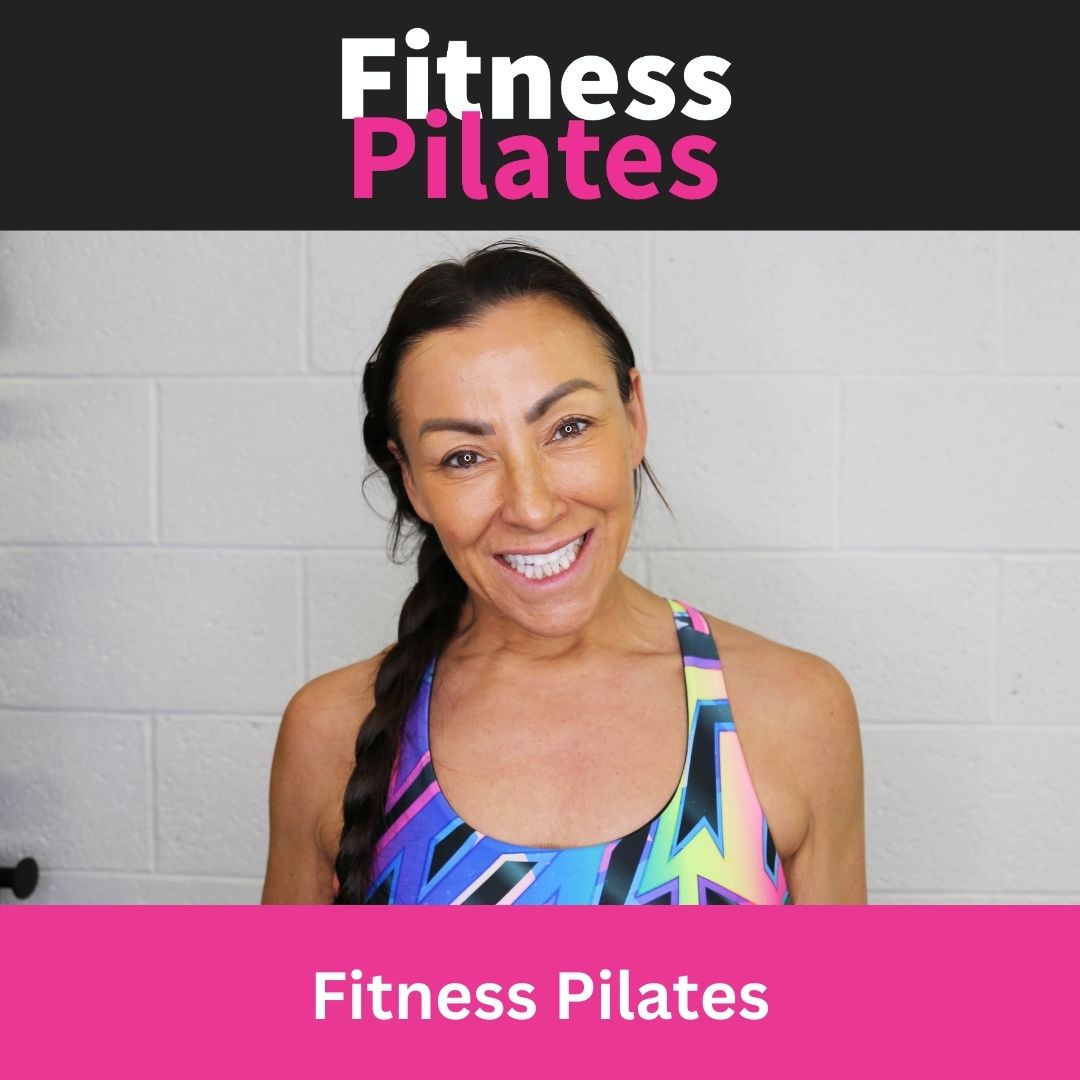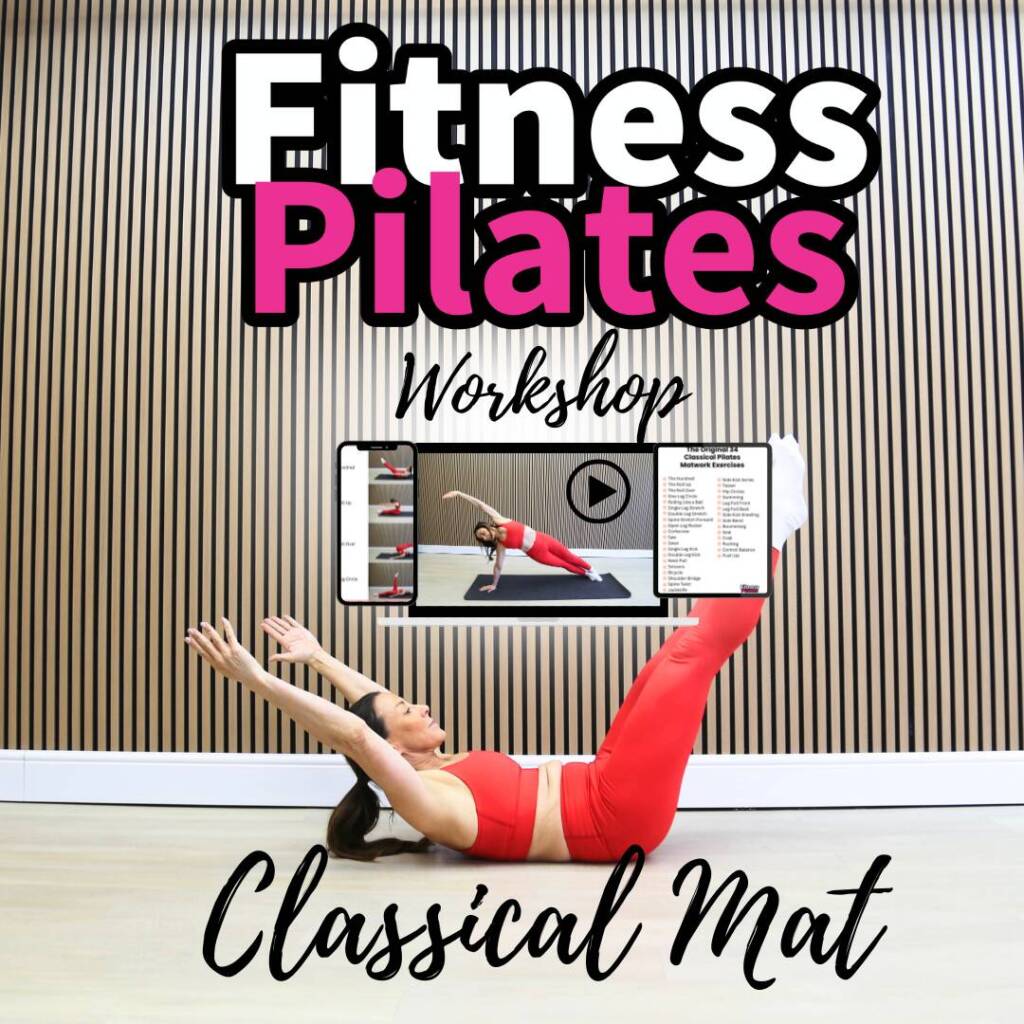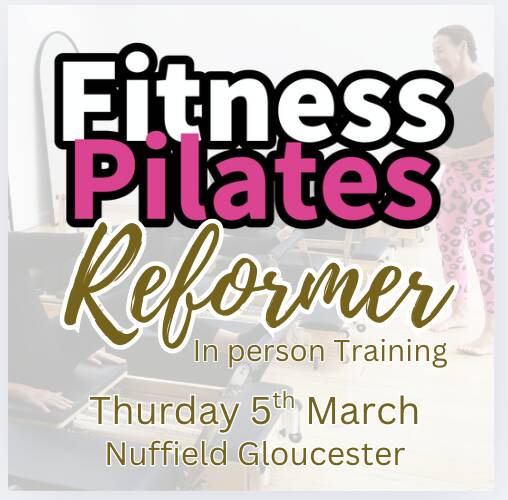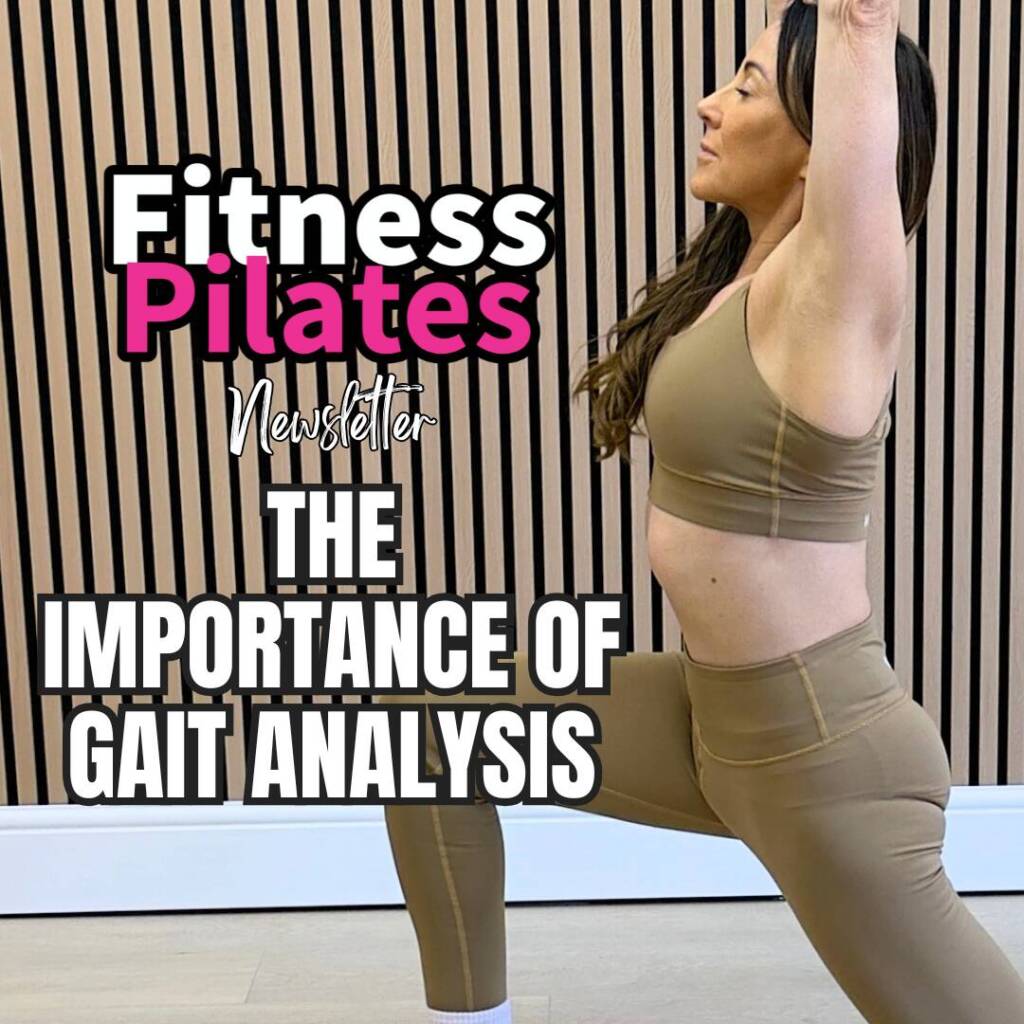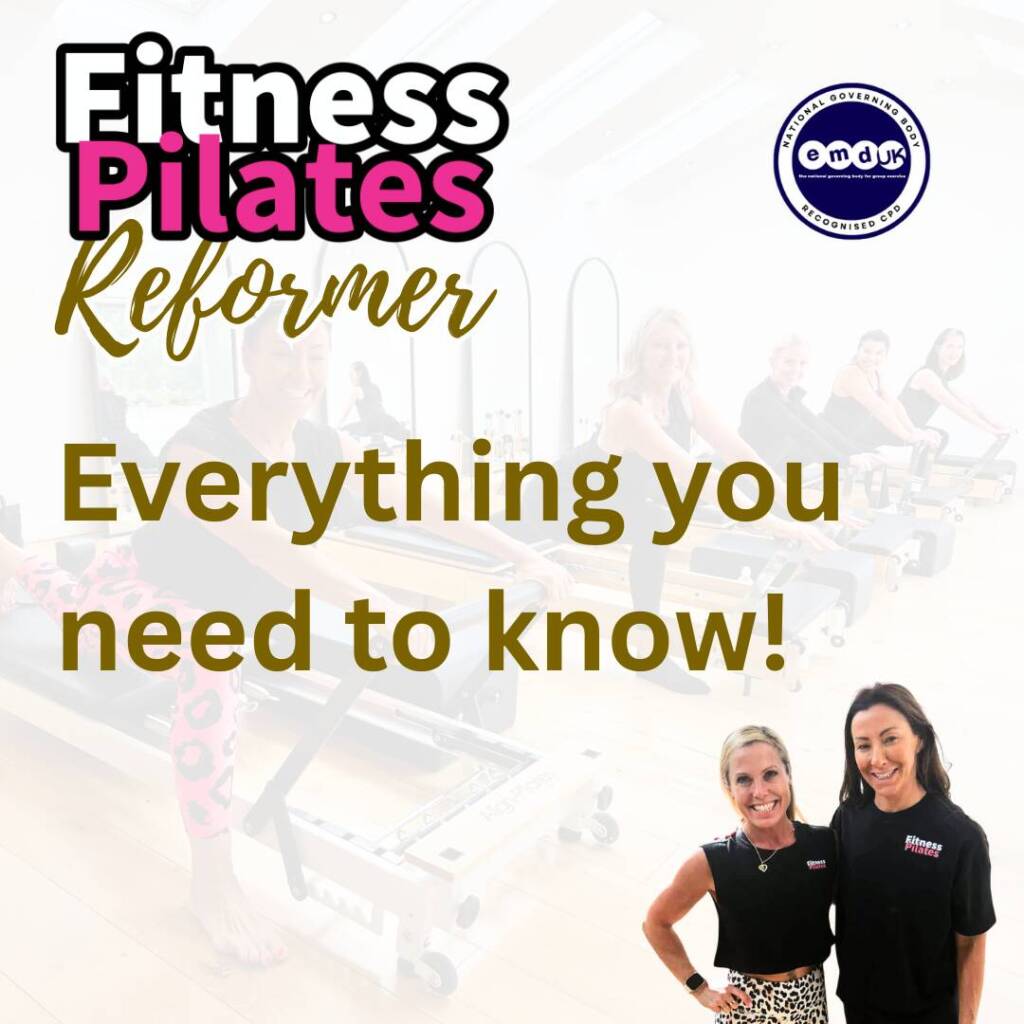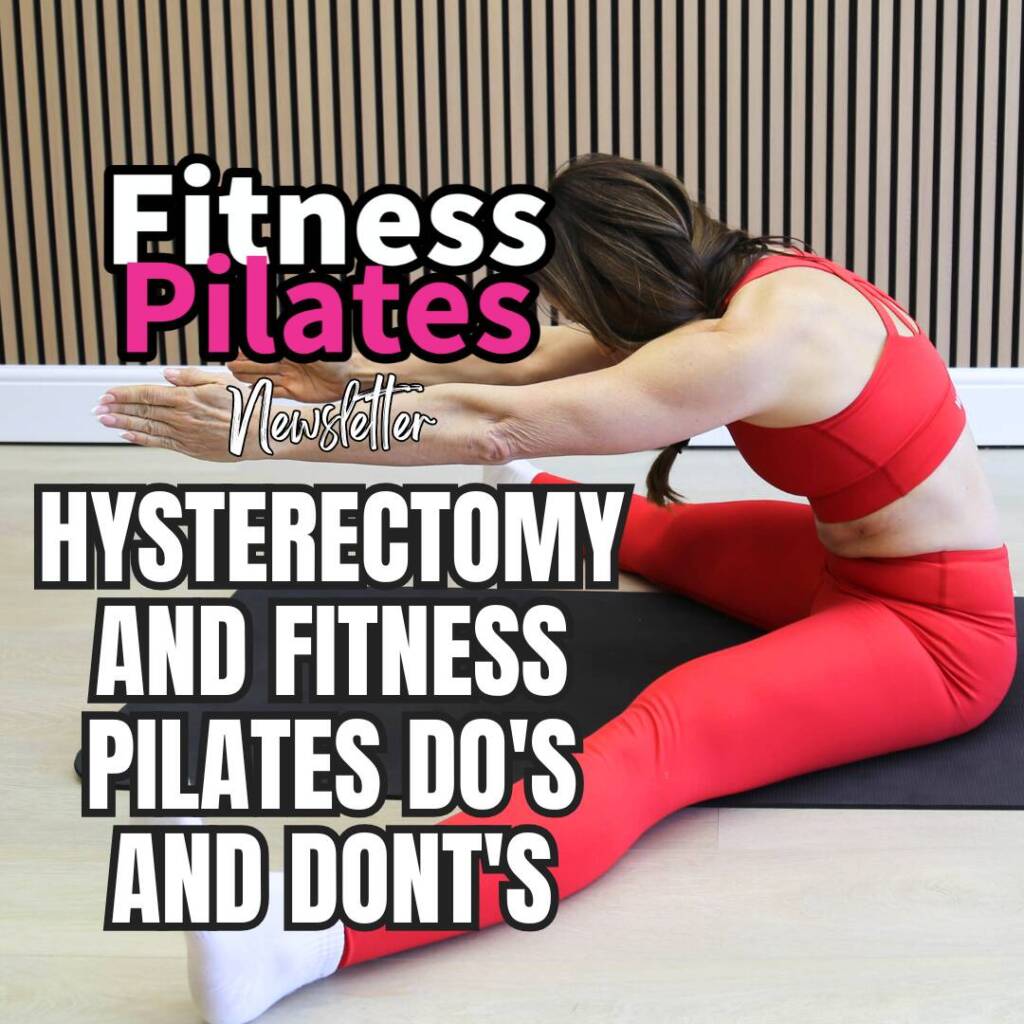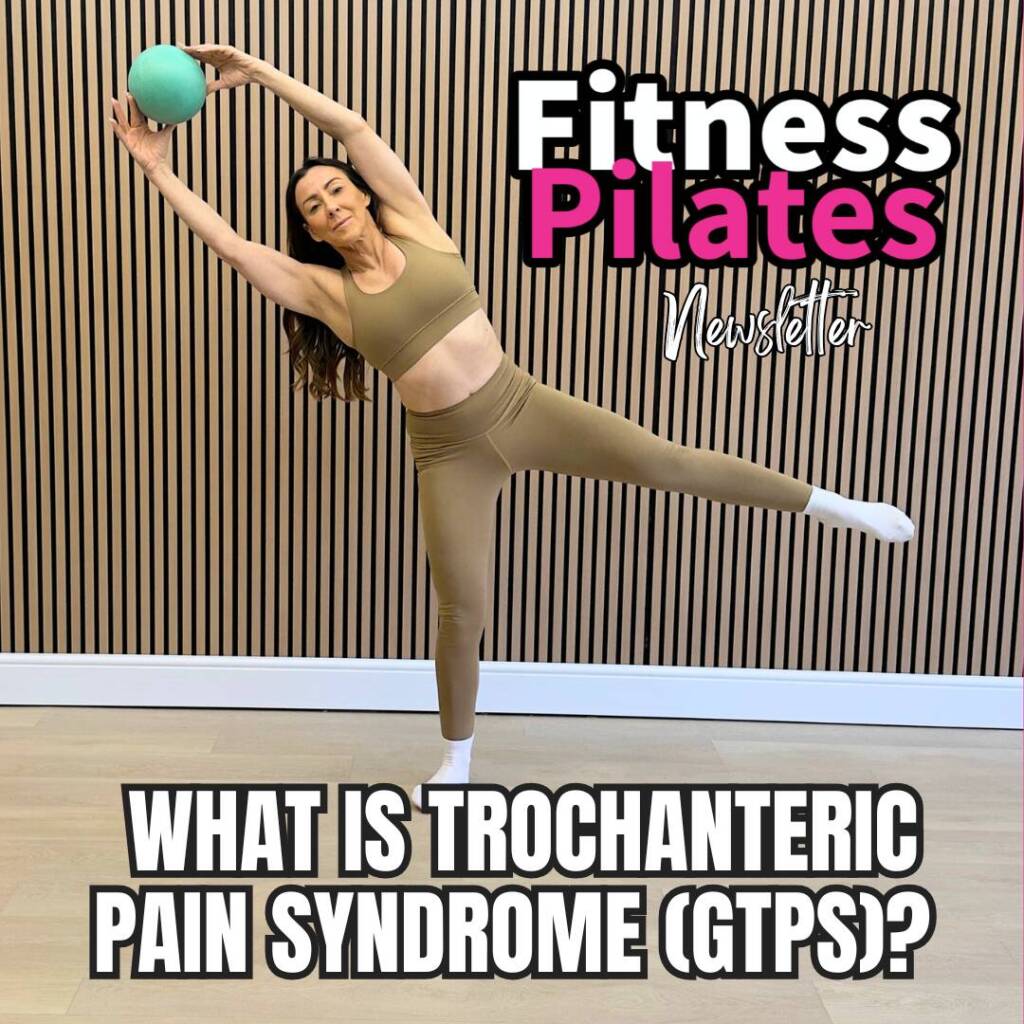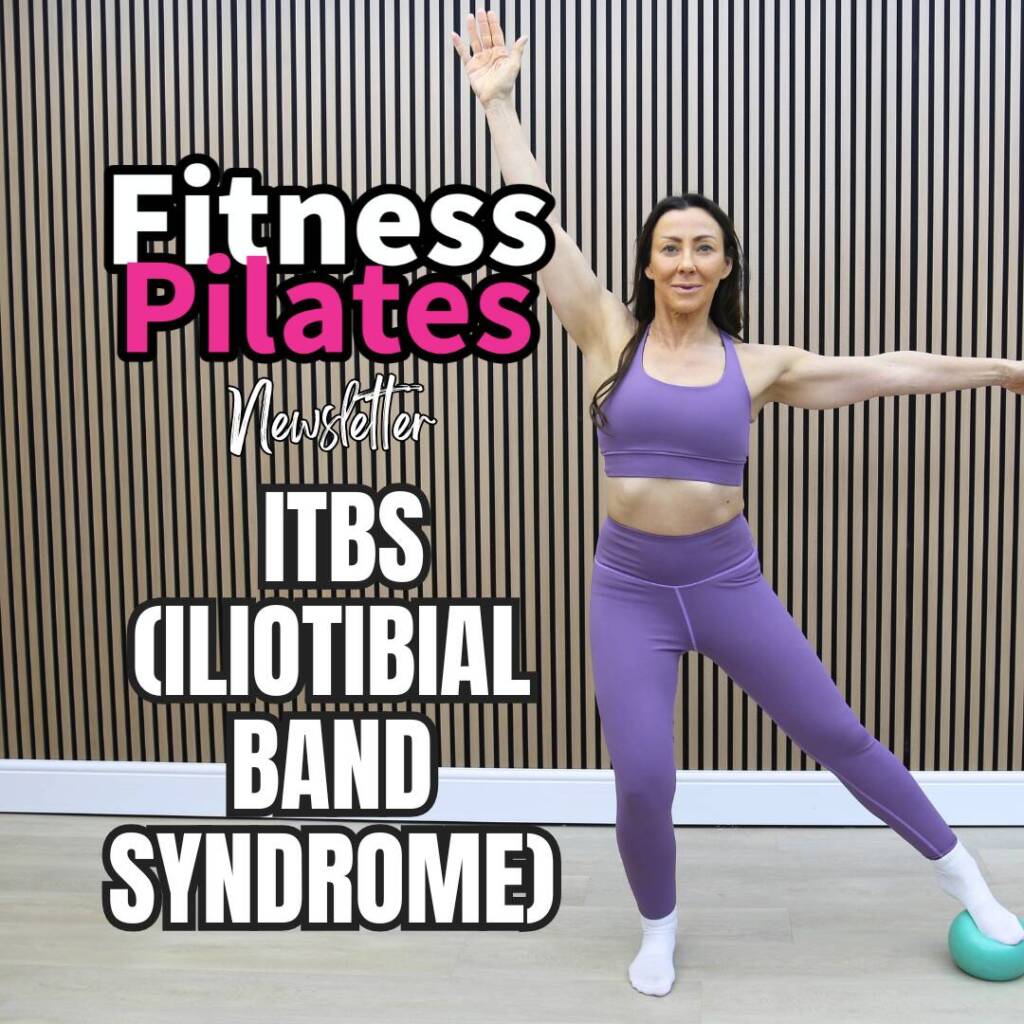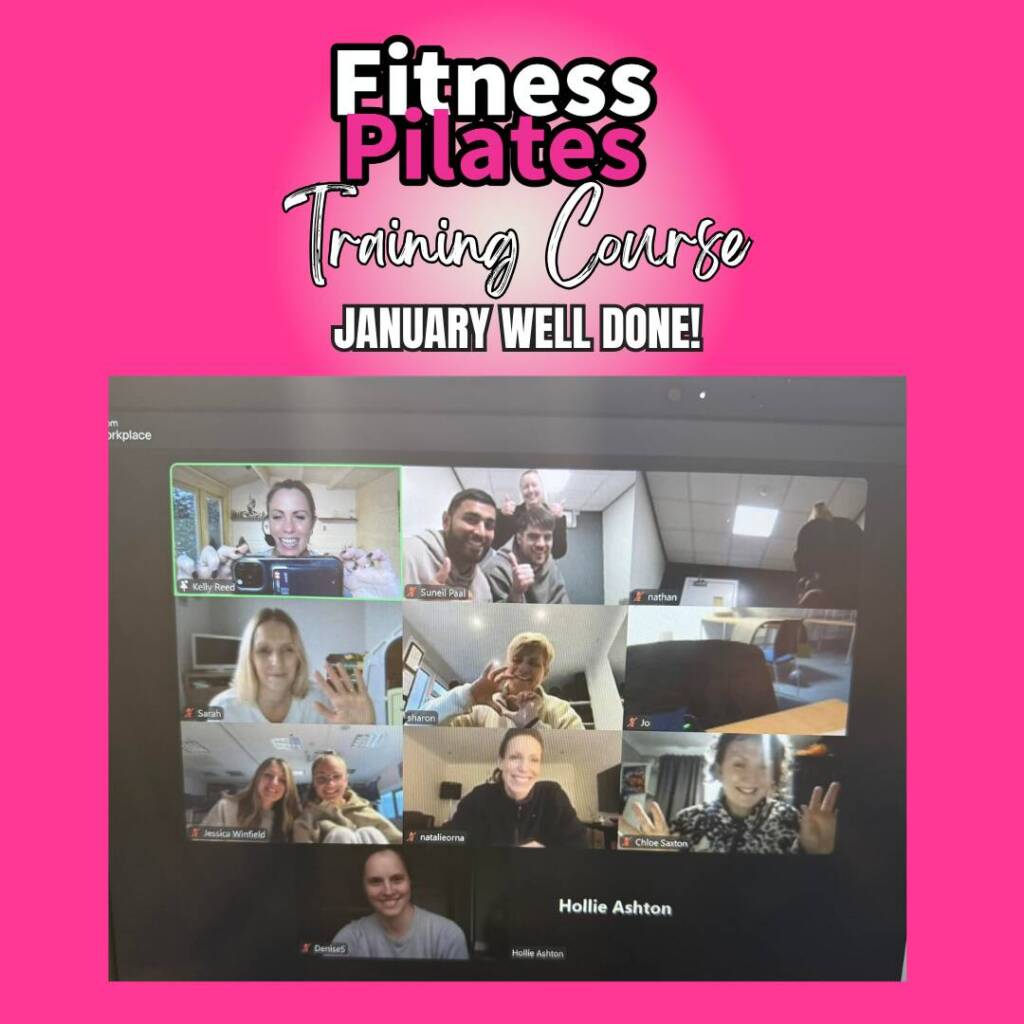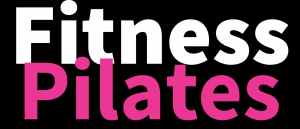
The Fitness Pilates Blog
Common Foot & Achilles Conditions and How Fitness Pilates Can Help
I’ve always been fascinated by foot biomechanics and how often the foot is overlooked in group exercise — yet it’s absolutely crucial for everything we do.
By simply adding a short foot and ankle section into your warm-up, you can transform how well participants move and perform throughout the rest of the class.
I’ve delivered numerous workshops on the foot and ankle (you’ll find them on the Choreographytogo website), but here are some quick reminders you can add straight into your classes this week.
I’ve delivered two fantastic face-to-face events this week — our Content Creation Day with lunch and an Aerobics Masterclass. Both were brilliant, and it’s always such a pleasure to see everyone in person.
Now we’re gearing up for the Fitness Pilates Summit — have you booked your place yet? There are only a couple of spaces left, so don’t wait too long to secure yours!
I’ve also taken delivery of my new Reformers here at C2GO HQ, ready to run dedicated Reformer Teacher Training face-to-face. If you’re interested, you’ll find all the details below.
Common Foot & Achilles Conditions and How Fitness Pilates Can Help
Understanding the Foot Fascia
At the foundation of many foot and ankle problems is the plantar fascia — a thick band of connective tissue that runs from the heel bone to the toes.
- It acts like a shock absorber, supporting you with every step.
- It maintains the arch of the foot and provides stability.
- It’s part of the windlass mechanism — when your toes extend during walking, the fascia tightens, helping propel you forward.
When the fascia becomes tight, weak, or inflamed, it can lead to pain in the heel, arch, or ball of the foot. This often contributes to issues further up the chain in the ankles, knees, hips, and even the lower back.
Pilates Connection:
Mobilising the fascia with gentle rolling, strengthening the intrinsic foot muscles, and improving overall posture and alignment are key ways Pilates can help.
1. Plantar Fasciitis
Cause: Inflammation of the fascia, often from overuse, poor footwear, or tight calves.
Exercises to Do:
- Seated or standing calf stretches
- Rolling a ball under the foot
- Toe spreads/curls
- Heel raises
Avoid:
- Jumping or high impact
- Deep dorsiflexion if painful
Teaching Tip: Cue “spread your toes wide and press evenly through the tripod of the foot.”
General Tip: Supportive shoes outside class, daily calf stretches, foot rolling.
2. Achilles Tendinopathy
Cause: Overuse, tight calves, weak glutes/hamstrings, sudden load increase.
Exercises to Do:
- Calf raises (progress to single leg)
- Gentle calf stretches
- Glute bridges
- Controlled eccentric calf lowering off a step
Avoid:
- Jumping/plyo work
- Aggressive stretching of Achilles
Teaching Tip: Emphasise slow tempo calf raises over fast bouncing.
General Tip: Warm up calves, increase load gradually, add cross-training.
3. Metatarsalgia (Ball of Foot Pain)
Cause: High-impact, poor footwear, weak foot muscles.
Exercises to Do:
- Foot doming (arch lifts)
- Toe spreading/band resistance
- Towel scrunches
- Balance work barefoot
Avoid:
- Excessive forefoot loading (lots of lunges, long plank holds)
Teaching Tip: Cue “weight evenly across heel, big toe, little toe.”
General Tip: Use cushioned insoles, strengthen arches, avoid hard floors for long periods.
4. Bunions (Hallux Valgus)
Cause: Genetic predisposition, narrow shoes, poor muscle alignment.
Exercises to Do:
- Big toe stretches
- Toe separator exercises
- Foot strengthening with bands/ball
Avoid:
- Deep plies/squats forcing toe extension if painful
- High-impact forefoot moves
Teaching Tip: Cue “second toe pointing forwards” to support better alignment.
General Tip: Wear shoes with a wide toe box, use toe spacers if needed.
5. General Foot Stiffness & Poor Mobility
Cause: Ageing, menopause-related joint changes, sedentary lifestyle.
Exercises to Do:
- Ankle circles, point/flex drills
- Seated or supine mobility
- Balance work barefoot
- Ball rolling under foot
Avoid:
- Forcing painful ranges of motion
Teaching Tip: Add a short “foot series” in warm-ups/cool-downs.
General Tip: Do 2–3 minutes daily mobility (brushing teeth, watching TV), keep fascia supple with ball rolling.
Summary for Pilates Teachers
- Always teach clients to respect pain and modify if needed.
- Prioritise foot awareness, fascia mobility, and calf strength.
- Cue alignment: weight spread across heel–big toe–little toe.
- Keep exercises functional and low-impact when working with foot pain clients.
Let me know your thoughts and anything you would like me to cover just send me an email or whats app 07976268672
Rachel x
STOP PRESS
I have added a new FITNESS PILATES REFORMER course 21st August
20th September – FITNESS PILATES Summit
An inspiring day of learning, movement and community. Don’t miss this booking details below
We only have a couple of spaces left for this now.
**NEW**
Launching our small exclusive Reformer Teacher Training Studio here at C2GO HQ in Derbyshire.
We are excited to announce the launch of our exclusive Reformer Teacher Training Studio here at C2GO HQ in Derbyshire.
This is a fantastic opportunity for teachers who want to qualify to teach Fitness Pilates Reformer or the Level 3 Reformer qualification in person.
Our monthly online courses will continue as usual, but if you’d prefer face-to-face training, we now have September and October dates available.
Not sure which course is right for you — Fitness Pilates Reformer (FPR) or Level 3 Reformer (L3R) CLICK HERE or whats app me if you need more details 07976 268672
Spaces are limited to just 5 places per course and you will be working with both Kelly & myself.
We are both so excited to be launching the new teacher training studio dedicated exclusive hands on Reformer Teacher Training.
Join the weekly free Fitness Pilates newsletter here
UPCOMING PILATES COURSES
See the next Fitness Pilates training course dates here
See the next Reformer pilates training dates here
See the next Level 3 Pilates dates here
Have You Trained to Teach Fitness Pilates?
If you’re a qualified Fitness Pilates instructor, did you know that it’s required for insurance purposes — to update your CPD (Continuing Professional Development) every two years? See our updated list of CPD courses here
Share this post:
Latest Fitness Pilates Courses & Classes
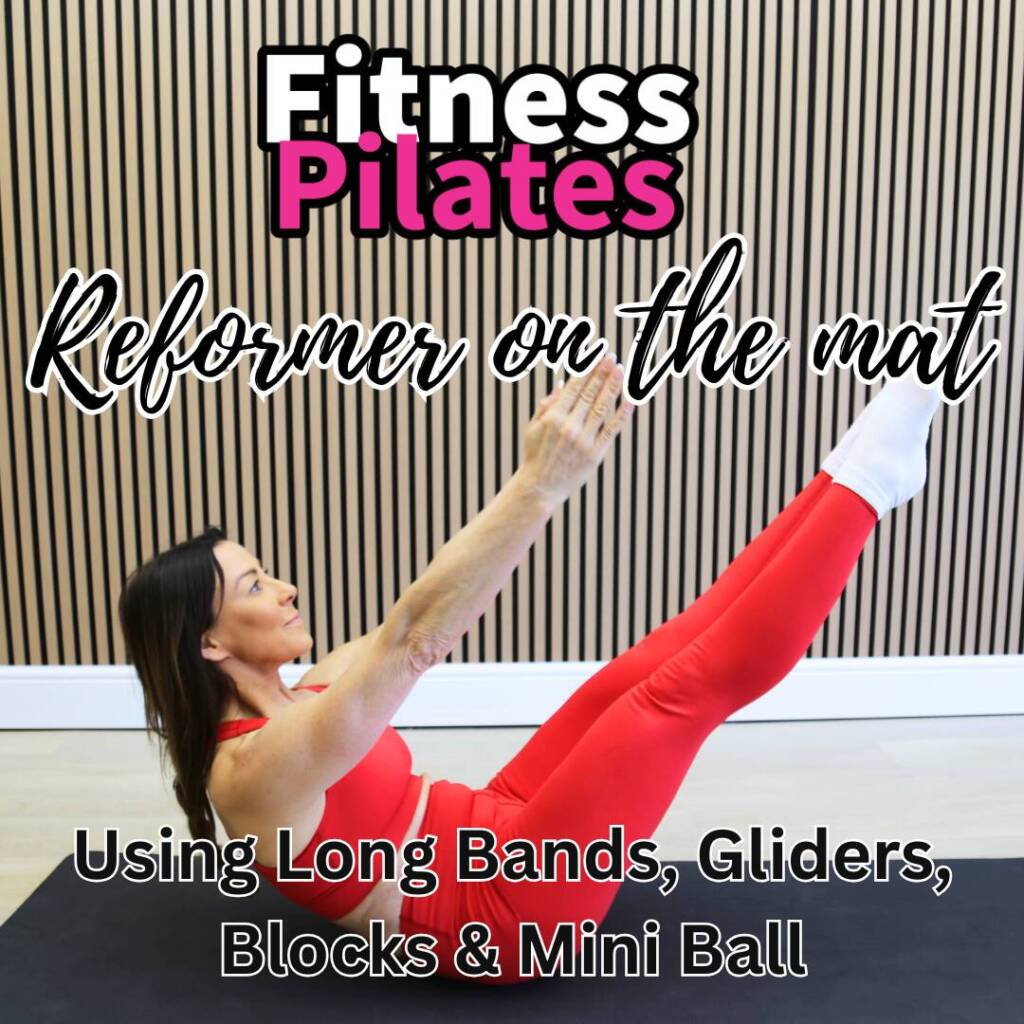
Fitness Pilates Reformer on the Mat Workshop Using Bands, Balls & Gliders
£67.00 Original price was: £67.00.£47.00Current price is: £47.00.
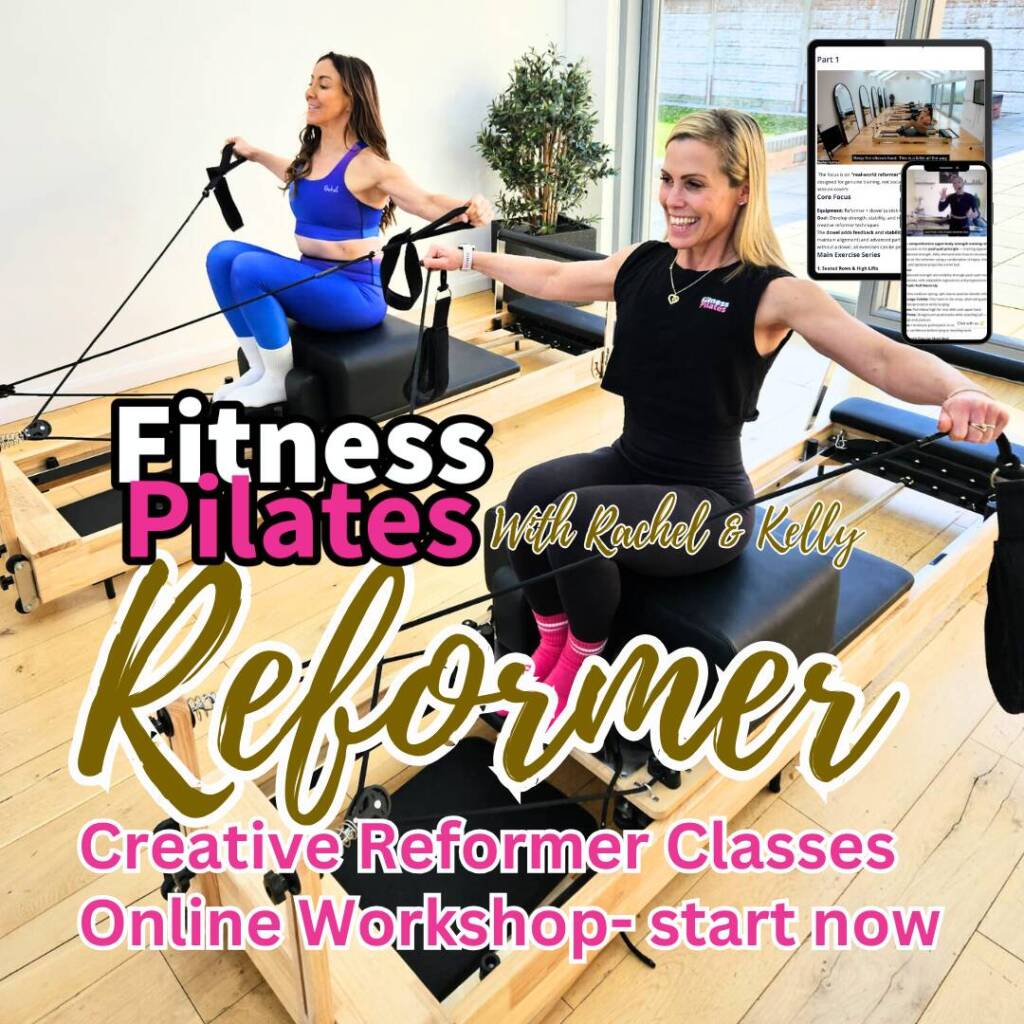
Creative Reformer Classes – Online Workshop
£75.00 Original price was: £75.00.£60.00Current price is: £60.00.


The latest Fitness Pilates blogs & news
Join the Fitness Pilates newsletter
A short description introducing your business and the services to visitors.
